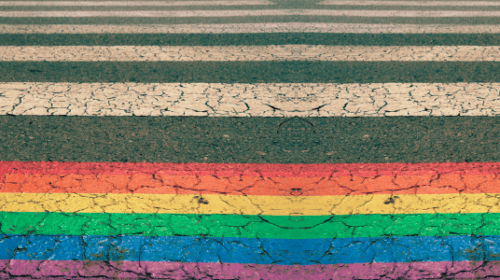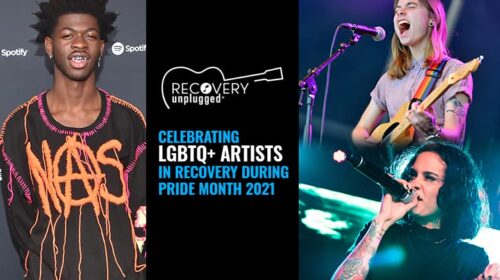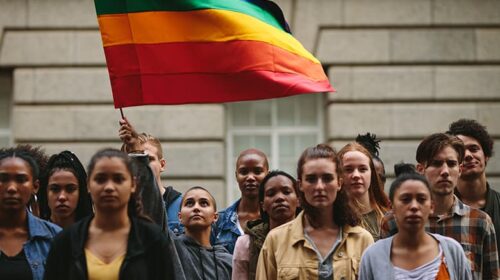As we prepare to celebrate this year’s Pride Month, it’s particularly important to examine the current mental health needs of the LGBTQ+ community. While this population continues to gain support as a collective group, this progress fails to find its way into the lives of far too many of its individual members.
For every culturally convenient gesture by a corporation, there are thousands of people who are still afraid to come out to their families and friends. For every headline made by an LGBTQ+ “icon”, there are thousands of kids being bullied, isolated, and waging an internal war with their identities because the people around signal intolerance and judgment. For every co-opting of LGBTQ+ culture, there are thousands of people who are scared and ashamed to be themselves in their professional and personal lives.
These realities have very real mental health ramifications for the people they impact, which can often lead to substance abuse, self-harm, and other life-threatening challenges. While it’s helpful and important to celebrate this month of empowerment, it’s also important to signal to the LGBTQ+ community that they are seen, heard and valued every day of the year.
A Current Look at Mental Health in LGBTQ+ Community
Members of the LGBTQ+ are at significantly increased risk for a variety of adverse mental health issues, including but not limited to:
- Depression – Depression symptoms are markedly higher among LGBTQ+ individuals than the general population across every age group. 1 For example, 50 percent of LGBTQ+ individuals (18-29) experience symptoms compared to 35 percent of heterosexual people in this age group.
- Anxiety – The same disparities found in depression symptoms can be found with anxiety symptoms. With over 60 percent of LGBTQ+ individuals 18-29 experiencing these symptoms compared to a little over 42 percent of the general population.1
- Self-Harm – People who identify as LGBTQ+ are significantly more likely to self-injure, specifically youth.2 In one comprehensive study, 48 percent of LGBTQ youth reported engaging in self-harm in the past twelve months, including over 60 percent of transgender and nonbinary youth.
- Suicide – At the same time, 46 percent of LGBTQ youth report wanting psychological or emotional counseling from a mental health professional but were unable to receive it in the past 12 months.2
Addiction in the LGBTQ+ Community
As other mental health struggles continue to impact LGBTQ+ people of all ages, they remain uniquely vulnerable to substance abuse. Recovery Unplugged has reported at length about these disparities and they continue to persist. LGBTQ+ adults continue to face higher rates of substance use disorder than the heterosexual population while facing considerably tougher barriers to treatment and support:
- Substance use disorders (SUD) affect 20 to 30% of the LGBTQ+ population, compared to 8.4% of the general population.3
- 86.4% of LGBTQ+ adults with SUD don’t get treatment. 3
- 86.8% of LGBTQ+ adults with co-occurring SUD and mental illness don’t get treatment.
- Those who identify as gay or lesbian are over 2X more likely to struggle with SUD. 3
- People who identify as bisexual are over 3X more likely to struggle with SUD. 3
What Can Be Done?: Being An Ally during Pride Month and Beyond
Recovery Unplugged remains committed to treating and supporting members of the LGBTQ+ community who are struggling with substance use disorder and other mental health challenges. As we celebrate Pride Month 2023, it’s critical that we remember that allyship and support are not simple “one-and-done” efforts. They are demonstrated in everyday interactions and through consistently signaling that we celebrate and embrace the lives and identities of the LGBTQ+ people in our lives. The Recovery Unplugged team wishes the LGBTQ+ and their supporters a happy, meaningful, and empowering Pride Month.
References
- US Census Bureau. (2022, December 14).Mental Health Struggles Higher Among LGBT Adults Than Non-LGBT Adults in All Age Groups. Census.gov. https://www.census.gov/library/stories/2022/12/lgbt-adults-report-anxiety-depression-at-all-ages.html
- 2018 NSDUH Annual National Report. (n.d.). CBHSQ Data.https://www.samhsa.gov/data/report/2018-nsduh-annual-national-report
- The Trevor Project National Survey 2020. (n.d.).https://www.thetrevorproject.org/survey-2020/?section=Suicide-Mental-Health

























